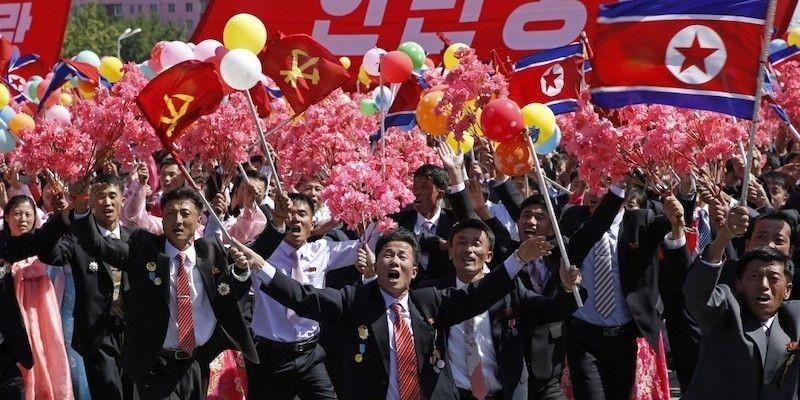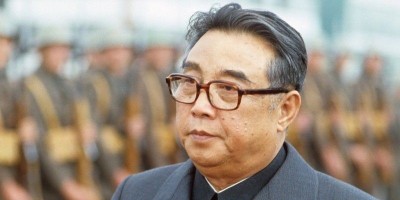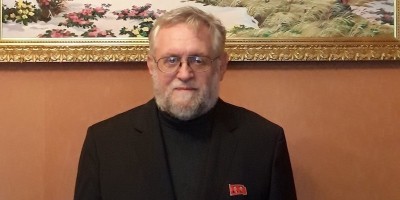The DPRK: How Does the World See This Country?

SEPTEMBER 9 this year marks the 73rd founding anniversary of the Democratic People’s Republic of Korea.
Over the past seven decades of its development the country has demonstrated its dignity and honour, overcoming all sorts of challenges and difficulties. We look back on its history through the names it was called in each period.
“Democratic Korea”
On August 15, 1945, Korea was liberated from Japan’s military occupation. It was a task of the times confronting the Korean people to decide which road the new Korea should take.
Korea adopted the road of Korean-style democracy, progressive democracy, not the road of Soviet-style democracy nor the US-style democracy. On the basis of the founding of the people’s government and the implementation of democratic reforms such as the agrarian reform, nationalization of key industries and gender equality, the Democratic People’s Republic of Korea, the people’s country with the working masses as its masters, was founded on September 9, 1948. The world people called the new Korea democratic Korea.
“Heroic Korea”
The Korean war (1950-1953) waged by the imperialist allied forces led by the US that boasted of being the “strongest” in the world to stifle the DPRK, which was only two years old since its founding, was literally a “confrontation between an A-bomb and a rifle.”
Few thought that Korea would win the war. But the Korean people repulsed the imperialist aggressors and defended the country. Many people in the world praised the DPRK as heroic Korea as it created a myth of bringing to its knee the imperialist power.
“Chollima Korea”
The appearance of post-war Korea was such that it could not be expressed otherwise than “ashes.” The US claimed that Korea could not rise again even in one hundred years.
However, the Korean people have turned out in the struggle to create a new life. After completing reconstruction in less than three years, it carried out the centuries-old task of socialist industrialization in 14 years, running in the spirit of legendary Chollima, a horse that can run 400 kilometres a day. The word Chollima Korea widely spread in the world.
“Land of Juche”
The whole course covered by the DPRK can be called the process of applying the Juche idea. After its founding, the country has achieved remarkable successes in socialist construction by thoroughly applying the Juche idea and dealing with everything in conformity with its specific conditions and the interests of its people. Universal free medical care and free education were enforced and a heyday of socialism was opened in all fields of society.
The Juche idea has been widely disseminated to the world; more than 1 100 research and dissemination organizations in over 100 countries have been formed with the International Institute of Juche Idea and regional organizations as the centres.
The country has become widely known as the land of Juche.
“Socialist Fortress”
The collapse of socialism in one country after another at the end of the last century weakened the faith in socialism among many people of the world. At that time, Chairman Kim Jong Il of the National Defence Commission of the DPRK made public important works, including Socialism Is a Science, which proved the scientific accuracy and truthfulness of socialism and the inevitability of its victory.
The country smashed by dint of the treasured sword of Songun politics the general offensive the imperialist allied forces had launched to stifle it availing themselves of the collapse of the world socialist camp, firmly defended its socialist system and ushered in a new era of building a powerful socialist country. The DPRK has become recognized by the international community as a socialist fortress which no one can destroy with anything.
“Country of Single-hearted Unity”
Many people in the world are surprised to see the DPRK advancing along the road of independence without the slightest vacillation in the face of severe trials and challenges of history.
The dangerous military pressure by the hostile forces and the hideous economic blockade which could not be otherwise described as being aimed at “annihilating a nation” could not bring the Korean people to their knees.
How could the DPRK, which is not so large in terms of population and territory, overcome such tremendous challenges? The secret was the single-hearted unity in which the national leader and the people share the intention and destiny. This single-minded unity is unique to the DPRK, which no country can imitate nor possess and is the most powerful political weapon that cannot be destroyed even by a nuclear bomb. The country of single-hearted unity is the most correct name characterizing the DPRK. 

